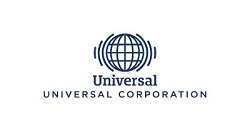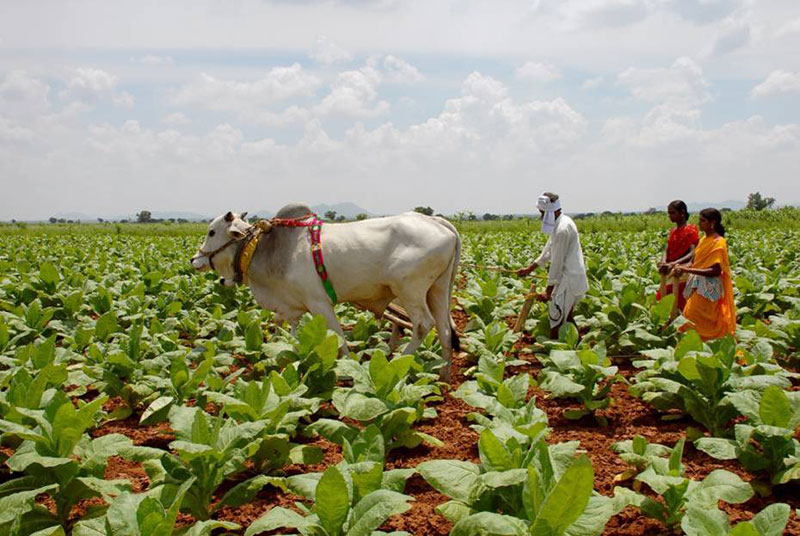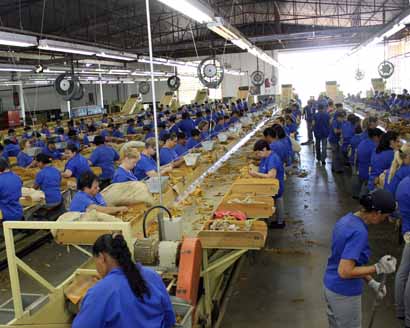Swedish Match’s snus shipments in Scandinavia during the three months to the end of September, at 66.6 million cans, were increased by about eight percent on those of the three months to the end of September 2017, 61.7 million cans.
During the same periods, shipments of moist snuff in the US were down by about six percent to 31.7 million cans, while shipments of snus and nicotine pouches outside Scandinavia were increased by 97 percent to 6.9 million cans.
Swedish Match’s share of the Swedish snus market was down by 2.2 percentage points to 63.2 percent, while its share of Norway’s snus market was down by 1.1 percentage points to 51.0 percent.
The company’s US cigar shipments during the three months to the end of September, at 427 million pieces, were increased by about five percent on those of the three months to the end of September 2017, 405 million pieces.
During the same periods, the company’s chewing tobacco shipments, excluding contract-manufacturing volumes, fell by about seven percent to about 1,526,000 pounds.
Swedish Match reported that, in local currencies, sales increased by 10 percent for the third quarter, while reported sales increased by 16 percent to SEK3,388 million.
Also in local currencies, operating profit from product segments (excluding other operations and larger one-time items) increased by 13 percent, while reported operating profit from product segments increased by 19 percent to SEK1,317 million.
Operating profit amounted to SEK1,305 million, while profit after tax amounted to SEK959 million.
Earnings per share increased by 32 percent to SEK5.55.
In presenting Swedish Match’s three-month and nine-month results, CEO Lars Dahlgren (pictured) said that the company had delivered another quarter of very strong financial results. Sales and operating profit in local currencies had increased for the two largest product segments, snus and moist snuff, and Other tobacco products, while the Lights product segment had had a relatively stable year-on-year performance.
‘Snus and moist snuff product segment sales grew by 12 percent and operating profit increased by 17 percent in local currencies, with strength coming from both our Scandinavian snus business and our snus and nicotine pouches outside Scandinavia,’ he said.
‘Both the Swedish and Norwegian snus market grew at a robust pace compared to the prior year. In particular, we noted an acceleration of category volume growth in Sweden. Intense competitive activity and product innovations within the premium segment have been positive for the development of the snus category. We also believe that the exceptionally warm summer contributed to higher snus consumption this year.
‘The changeover to plain packaging in Norway has gone smoothly, but it is still early to assess if there will be any longer-term category implications.
We estimate that total Scandinavian snus market growth, measured on a volume basis, was close to seven percent during the quarter. On balance we are relatively pleased with the performance of our more recent product introductions in the Scandinavian snus market, but overall our portfolios have lagged category growth in both Sweden and Norway during the quarter. Despite the loss in market share, we estimate that the underlying (excluding V2 Tobacco and Gotlandssnus) volume growth for our Scandinavian snus business reached four percent, a strong growth rate relative to historical levels.
‘For international snus and nicotine pouches, we have now for two consecutive quarters reported positive operating results, stemming from strong volume growth for ZYN, improved pricing, and reduced marketing spending for US snus.
‘With the acquisitions of V2 Tobacco, and more recently Gotlandssnus, we have expanded our portfolio to include a range of unique snus products that not only provide growth opportunities in Scandinavia, but also present an ability to expand our international snus portfolio. In September, we introduced V2’s Thunder Xtreme, a range of strong snus products in the US.
‘Construction efforts directed towards our new ZYN production facility in Owensboro, Kentucky, continue according to plan.
‘Other tobacco products (cigars and chewing tobacco) had another good quarter, with sales and profit growth in cigars more than offsetting declines in sales and profits for our US chewing tobacco business in local currencies.
Cigar shipment growth continued to be driven by our rolled leaf assortment despite the price increase taken earlier in the year.
‘Given the rapid growth within the rolled leaf segment, we are facing increasing challenges in securing certain tobacco supplies but we have implemented measures that we expect will improve the situation during the first half of 2019.
‘The acquisitions of V2 Tobacco and Oliver Twist (with their chew bags and tobacco bits) delivered positive contributions to both sales and operating profit…’










